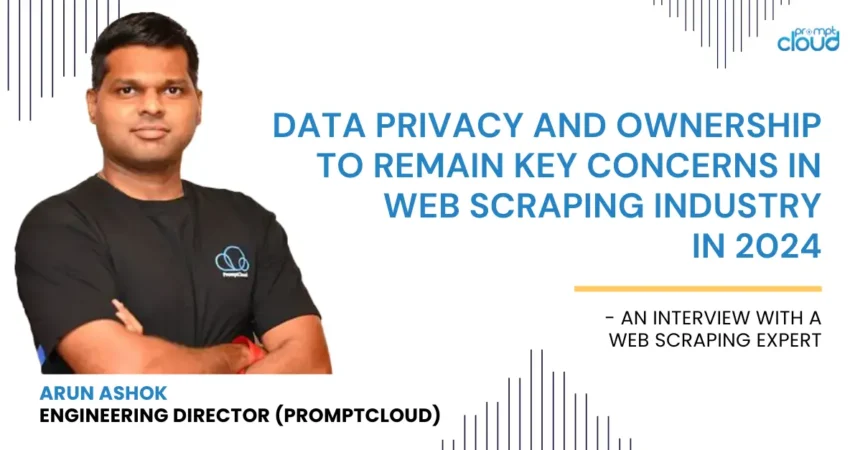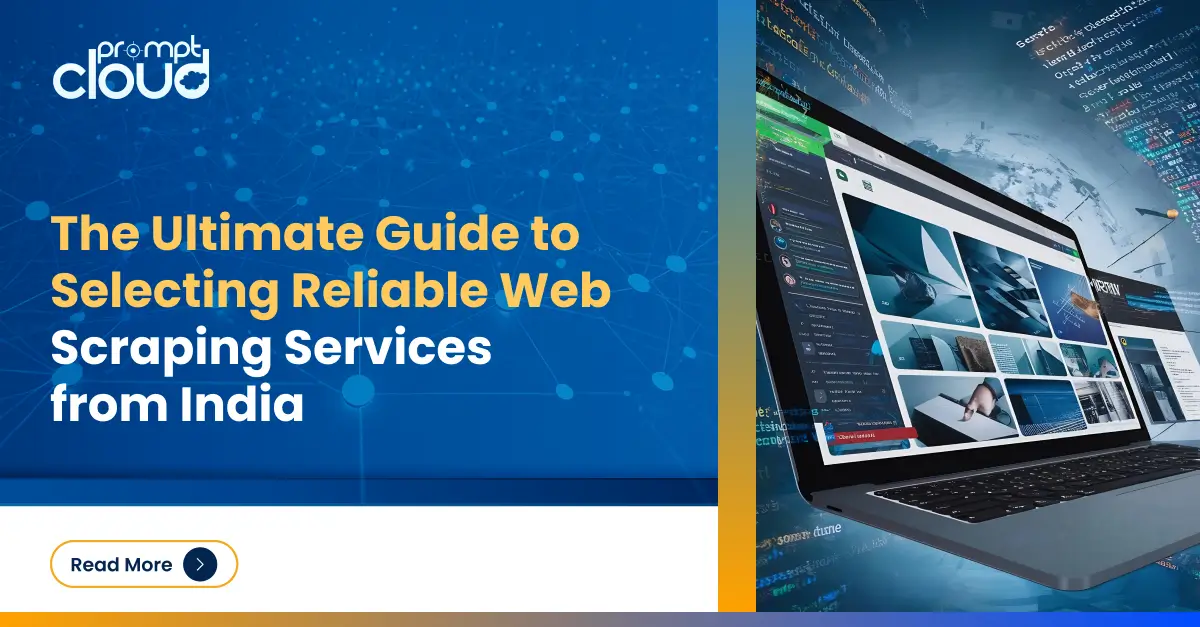
Did you know that, according to Forbes, roughly 2.5 quintillion bytes of data are generated daily? Undeniably, this massive influx of data holds immense advantages yet simultaneously fuels apprehension surrounding privacy and possession, especially in industries reliant on web scraping techniques. Balancing the profitable use of extensive openly accessible datasets against unethical conduct represents a persistent challenge.
In this article, we will explore these issues with the help of a web scraping expert and discuss what companies can do to ensure they are collecting and using data ethically and responsibly.
Can you briefly explain what massive web scraping is and why it is useful for businesses?
Massive web scraping refers to the automated process of collecting large volumes of data from websites with high reliability, consistency and scalability. This technique employs software or scripts to access the web, retrieve data, and then parse it to extract useful information. Unlike manual data collection, which is time-consuming and prone to human error, massive web scrapingenables the rapid and efficient harvesting of data from numerous web pages at scale.
It allows companies to gather vast amounts of data in a fraction of the time it would take manually. This is crucial for staying competitive. For example, by monitoring competitors’ pricing, a business can adjust its own pricing strategy in real-time. Or, by analyzing social media, companies can get immediate feedback on how their brand is perceived. Essentially, web scraping arms businesses with the data needed to make informed decisions quickly and efficiently. It’s like having a constant pulse on the market and your competition.
How do data privacy and ownership factor into the web scraping process? What are some potential risks or legal considerations that businesses should be aware of when engaging in web scraping?
When it comes to web scraping, data privacy and ownership are really important. These factors determine who gets to access and use the data being gathered. Businesses need to make sure they’re following all the necessary laws and regulations of the region related to data collection and usage, like GDPR in Europe, California’s CCPA/CPRA, ISO 27701, India’s DPDP, APEC Privacy Framework, and IAAP’s Privacy by Design. Apart from these, states and regions have drafted their own privacy policies.
There are definitely some risks involved, including copyright infringement, breaking website terms of service, and invading people’s privacy. Plus, legalities like getting appropriate consent for data collection and safeguarding sensitive information matters.
From your perspective, how has the issue of data privacy and ownership evolved in the web scraping industry over time? Are there any recent trends or changes that stand out to you?
Over time, data privacy and ownership have gotten more complicated in web scraping. With greater regulatory attention and rising public worry about data security, things have changed quite a bit.
Firstly, understanding your customers, and their use cases are more important, not only to ensure you serve them better, but also to ensure you are complying with the rules and regulations.
Additionally, ensure your infrastructure and tech stack are ethically sourced and adds to more robustness and reliability without any data infringement concerns.
Nowadays, you might encounter “robots.txt” files that let website owners decide if bots can crawl their sites, or new technology meant to catch and stop unauthorized web scraping attempts. While the Robot Exclusion Protocol using robots.txt existed since the 1990s and it was not an internet standard, ethical scraping involves honoring it.
With the advent of ChatGPT and more GenAI tools, website owners should take advantage of maximizing data transparency without disclosing any personally identifiable information for a better reach, and to serve their user base better.
What do you think the biggest challenges will be for the web scraping industry in terms of data privacy and ownership, in 2024? How do you see these issues being addressed by businesses and regulators?
In 2024, one major hurdle for the web scraping industry will likely involve adjusting to shifting laws and regulations related to data privacy and ownership. Successfully navigating these challenges requires close cooperation between businesses and regulators to ensure alignment on industry advancements and individual rights.
Moreover, given the rising consciousness and anxiety among consumers concerning data privacy, organizations could experience mounting expectations to fortify their data protection mechanisms.
The majority of respondents in a recent poll indicated that they believe companies developing AI tools should be responsible for ensuring ethical data practices. As a web scraping expert, what steps can these companies take to meet this responsibility and prioritize user privacy and responsible data use?
In my opinion, ethical considerations are the foundation of any business to be successful and sustainable over time, whether they are AI-first or not.
A lot of people believe that companies creating AI tools should be responsible for upholding ethical data practices. From my perspective, here are some ways these organizations can fulfill that responsibility:
- Implement solid data governance policies
- Regularly audit their data management procedures
- Invest in cutting-edge data encryption and protection technologies
- Be open about their data collection techniques
- Give users control over their personal information.
In order to ensure ethical and responsible use of collected data, what best practices would you recommend that businesses follow?
If you want to ensure ethical and responsible use of collected data, here are some recommended practices:
- Get explicit permission for data collection whenever feasible
- Safeguard sensitive information and restrict its distribution
- Adhere to website terms of service and robots.txt protocols
- Offer transparency concerning data collection and utilization practices
- Only employ data for genuine business reasons
Globally, while legislation may have to catch up a bit in some of the regions in terms of ensuring the individual privacy, web scraping companies can play a crucial role along with website owners to ensure the individual privacy is not compromised.
Tackling data privacy and ownership concerns in web scraping boils down to approaching the matter proactively and with an unwavering dedication to integrity and stewardship. Prioritizing ethical data practices and cultivating trustworthy connections with stakeholders enables businesses to leverage web scraping effectively while reducing risk exposure and adhering to pertinent laws and regulations.




















